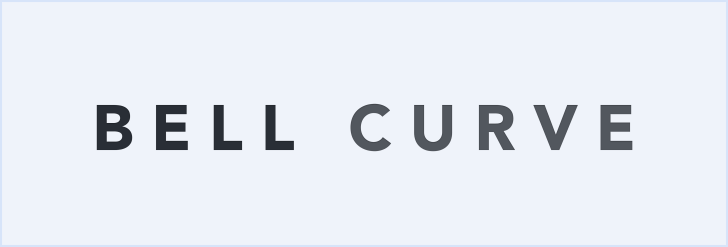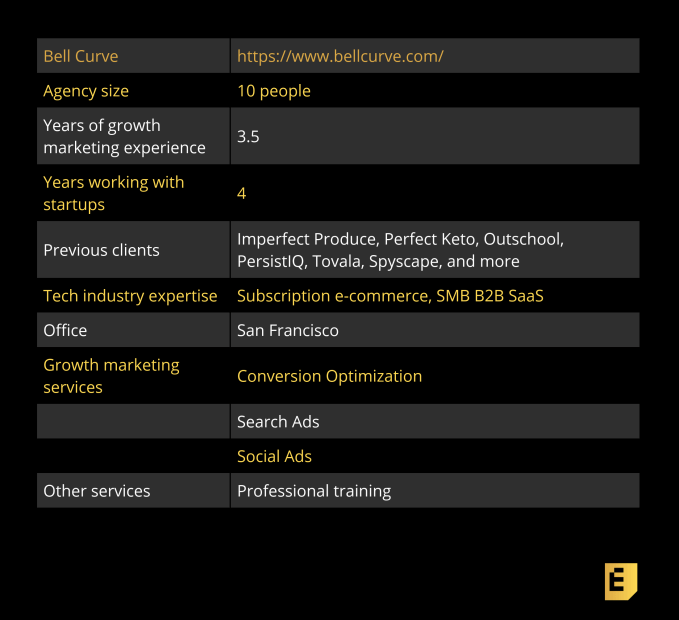

Bell Curve founder Julian Shapiro describes his team as talented growth marketers who have a long tail expertise of various channels and who aren’t afraid to play part-time therapists. As an agency, they’re comfortable grounding founder expectations by explaining “No, virality isn’t a dependable growth strategy,” but “Hey, we can come up with a better strategy together.”
Bell Curve, the agency, also runs Demand Curve, a remote growth marketing training program that teaches students (and marketing professionals) the ins and outs of performance marketing.
For a glimpse of how Bell Curve thinks about growth marketing, check out Julian’s guest posts about how startups can actually get content marketing to work and how founders can hire a great growth marketer.
What makes Bell Curve different:
“Bell Curve runs a growth bootcamp which we took in February. It radically improved our growth rate, gave us access to enough data to experiment with, and as a result we built an engine for growth that we could continue to tune.” Gil Akos, SF, CEO & Co-founder, Astra
“We run a program where we train companies to run ads on every channel. So, what makes Bell Curve unique is that we, by necessity, have a deep understanding of many more channels than the average agency. We have an archive of tactics and approaches that we’ve accumulated for how to do them just as well as the big ad channels.
In effect, companies come to us when they need expertise beyond Facebook, Google and Instagram, which we still bring to the table, but when they also need to figure out how to make Quora ads profitable, how to get Reddit working, how to get YouTube videos working, Snapchat, Pinterest, etc. These are channels people don’t specialize in enough and so we also bring that long tail of expertise.”
On common misconceptions about growth:
“A common mistake people make coming into growth is thinking that growth hacks are a meaningful thing. The ultimate growth hack is having the self-discipline to pursue growth fundamentals properly and completely. So, things like properly A/B testing, identifying your most enticing value propositions and articulating them clearly and concisely, bringing in deep channel expertise for Facebook, Instagram, Google Search, and a couple of other channels. These are the tenants of making digital growth work. Not one-off hacks.”

Below, you’ll find the rest of the founder reviews, the full interview, and more details like pricing and fee structures. This profile is part of our ongoing series covering startup growth marketing agencies with whom founders love to work, based on this survey and our own research. The survey is open indefinitely, so please fill it out if you haven’t already.
Interview with Bell Curve Founder Julian Shapiro

Yvonne Leow: Can you tell me a little bit about how you got into this game of growth?
Julian Shapiro: I actually started by running growth for friends’ companies because they had a hard time finding experienced growth marketers. After a year and a half of doing this, I realized it’d be a more stable source of income if I formed an agency. It’d also allow me to pattern match so I could exchange learnings among clients and have a better net performance.
It all came together very quickly. Once Bell Curve hit about 10 clients, we had enough strategic and customer acquisition overlap that we were able to share tactics, double our volume of A/B testing, and get better results. It also gave us the ability to hire out a full-fledged team so we could start specializing, whereas, as a contractor, I was too much of a generalist. I wasn’t able to go deep on certain channels, like Snapchat or Pinterest ads.

